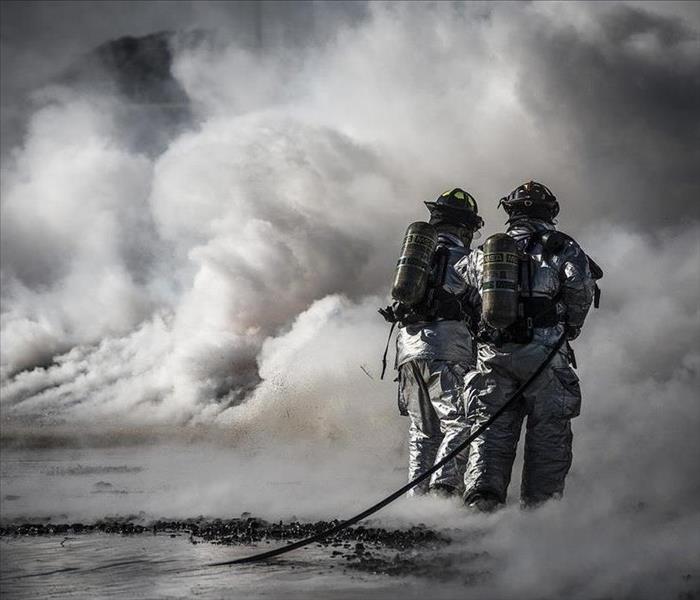Space Heater Safety
11/20/2019 (Permalink)
With temperatures dropping as we turn the corner into November, a heated home is becoming more necessary to relieve us from the chilly temperatures in Hunt Valley & Harford County. For many homeowners, space heaters are a popular method of providing that desired warmth. While they perform a helpful function, space heaters can also become dangerous. The Consumer Product Safety Commission estimated in 2013 that 25,000 residential fires and 300 deaths are caused each year by space heaters. However, with a thorough understanding of space heater safety, you can utilize your space heater while keeping your home and family members safe.
Space heaters can ignite fires if they come into contact with combustible items. Therefore, space heaters should be situated at least 3 feet away from combustible items, which can include curtains, rugs, papers, furniture such as sofas or beds, and clothes. They should also be kept on flat surfaces, away from major walkways in which someone could bump into the heater, knocking it over. Before using a space heater, always check to make sure that it has not been damaged in any way. Examples of damage can include frayed cords, cracks, and loose plugs in addition to damage to the heater itself. If you find that your space heater has been damaged, do not plug it in. Finally, it is a good idea to never leave your space heater unattended while it is in use, as it could ignite a fire with no one present who could notice the smoke or smoke smell and contain the fire. This is why it is crucial to unplug and turn space heaters off before leaving the house or falling asleep.
It may also be beneficial to have smoke detectors and alarms installed on every level of your home in order to detect fires as soon as possible. If you have children or pets in your home, make sure that they don’t get too close to the heater while it is in use in order to avoid injuries. In the event that a fire ignites as a result of space heater usage, call SERVPRO for any fire damage restoration needs.





 24/7 Emergency Service
24/7 Emergency Service
